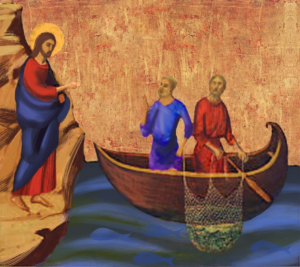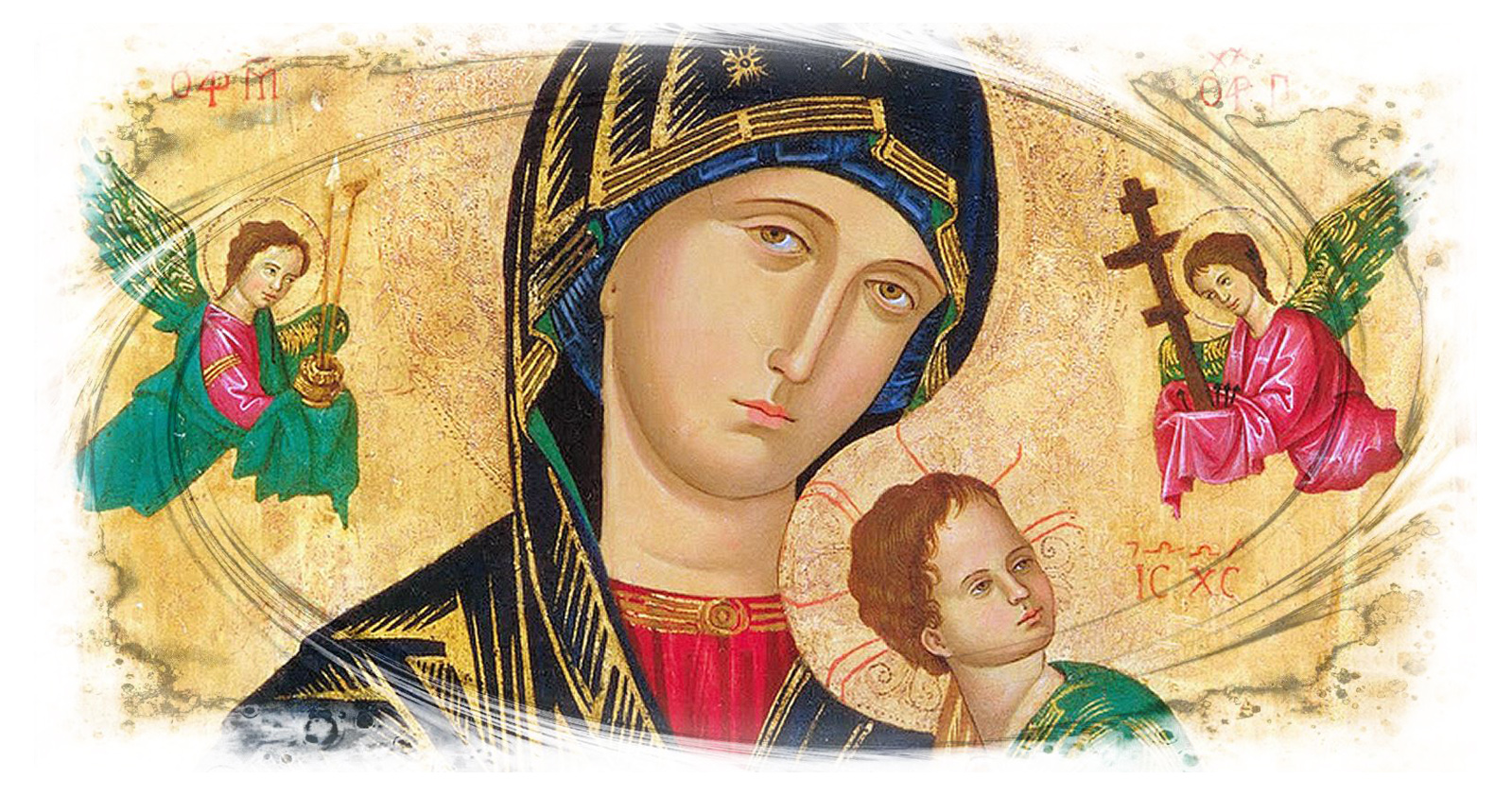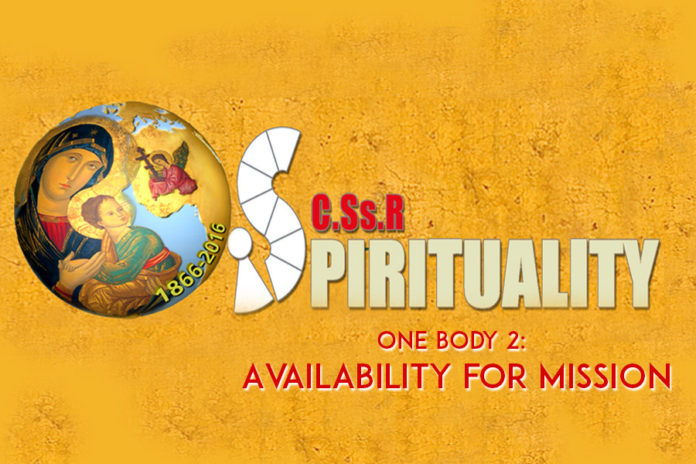Present Situation
One of the main themes reflected upon in our Congregation during the last sexennium was: availability for mission. We realized that in the process of renewing of our structures it is so easy to fall into a theoretical debate and an unrealistic way of thinking. This is why the theme of last sexennium ends with the very important words: for mission (cf., C 52-54).
An attentive observer of today’s world and church situation will realize that in many areas in which the world and the church must deal with there is a significant gap between theory and the real situation. One can have an impression that we are lost in endless meetings and summits and we do not where we will find the time to read the tones of papers full of theoretical analysis and simulations.
This can give us the impression that a lot is happening in terms of solving the problems that confront us: meetings, documents, strategies, treaties signed – efforts that genuinely make people tired. But the question is: do we ever arrive at a real solution that touches the life of real people in a real world? It is so easy to loose ourselves in the clouds, giving us the good excuse: “a lot has been done.” Living in the clouds, we can easily justify ourselves – at least we tried!
 The privileged place where theory and practice meet and make impact on real life is me. The real and tangible solutions appear when I make myself available and am ready to be part of the real life of those to whom I have been sent.
The privileged place where theory and practice meet and make impact on real life is me. The real and tangible solutions appear when I make myself available and am ready to be part of the real life of those to whom I have been sent.
If we are on fire with God’s love and mercy which is always concrete, we should be available to go wherever that love and mercy is needed in our world today. As Redemptorists we are meant to be men who are ready and willing to go to where there is most need (cf., C 15). But is that really true of us? Are we not often more concerned with protecting our own comfort and security?
The word Autonomy comes from Greek and can be translated as: “my own law.” We are all involved in our own “little world” that takes part in the big world. But in our daily ministry and in our usual way of doing things we often forget about the bigger picture. It is here that we are tempted to create “our own laws” – to be autonomos. In order to be efficient and to complete our tasks we often protect our autonomy. There will be always a tension between saving “my own law” and letting Jesus to be my law or, better, allow Him to use “my own law” in His evangelical project.
While it would be unwise to abandon every structure and security and fall into purely spontaneous activity, it is also unwise to become so much attached to the usual way of doing things because we are sure of success.
It is a challenge to discern between what is a burden and should be abandoned and what is worthwhile and needs to be followed despite the many risks. This challenge can be accepted only in the light of the Gospel since only the mystery of Word Incarnate throws true light on the mystery of humanity and on the full reality of its calling (cf., C 19).
For many years we have been referring to Constitution 20 as our “identity card.” Many times we quote this Constitution at our assembles and whenever we are asked who we are as Redemptorists we point to it. But quite often we limit our quotation to the first part of that Constitution and perhaps forget a little about the second part. Let us read it all: Strong in faith, rejoicing in hope, burning with charity, on fire with zeal, in humility of heart and persevering in prayer, Redemptorists as apostolic men and genuine disciples of Saint Alphonsus follow Christ the Redeemer with hearts full of joy; denying themselves and always ready to undertake what is demanding, they share in the mystery of Christ and proclaim it in Gospel simplicity of life and language, that they may bring to people plentiful redemption.
Are we willing to be men who do not have a place to call home but rather find our home among those most in need? Is Constitution 20 really our badge of fidelity?
Word that gives us light
Let us read carefully the passage from the Gospel according to Luke where Simon becomes “the fisherman” (cf., Lc 5, 1-11).
 From a human and rational perspective, Simon should never have obeyed Jesus’ order. He was a professional fishermen and spent all his life fishing. Catching fish was all his life. He knew the sea, he knew the times and the periods when one could catch fish. Just like every other fisherman, Simon had his own rules and laws and he knew how to implement them in order to be successful in his work. One of them was that fish can be caught only at a certain time of the day. When Jesus tells him to lower the nets for the catch, He invites him to act against every fishermen’s rule and law, even again his own private law.
From a human and rational perspective, Simon should never have obeyed Jesus’ order. He was a professional fishermen and spent all his life fishing. Catching fish was all his life. He knew the sea, he knew the times and the periods when one could catch fish. Just like every other fisherman, Simon had his own rules and laws and he knew how to implement them in order to be successful in his work. One of them was that fish can be caught only at a certain time of the day. When Jesus tells him to lower the nets for the catch, He invites him to act against every fishermen’s rule and law, even again his own private law.
When Jesus approaches Simon and his companions He finds them in a very tough situation. They were washing their empty nets. Probably it was not the first time that they had to wash empty nets but such an experience is always hard for every fishermen. They did everything right. They started their catch at the right time, they followed all the rules and laws as they knew them, they dedicated many nighttime hours to this task, they got tired and for what: empty nets.
This was Simons life: catching fish. He knew that sometimes it ends with empty nets but it was also obvious that after a moment of disappointment he would start again – perhaps the next night – catching the fish. Because this was his life: the sea, the boat, the nets and again the sea, the boat and the nets and again….. Simon’s life would had continued like this had Jesus not invited him to something bigger, new and unknown. He enables Simon to take this step.
In obeying Jesus, Simon breaks his own autonomy: “his own law”. This is perhaps the most difficult moment of the story. Simon acts against his own conviction and in a certain way against his own reputation as a professional fishermen. But the biggest change that we observe in the story as reported by Luke, is that Simon changes his mentality. It is revealed by the way he refers to Jesus. First he calls Him “master” – perhaps out of the respect that Jesus deserved. After the abundant catch he calls Him Lord – out of his own experience. This is just the beginning of the project that Jesus had in mind for Simon when He met him; to make him “give up his autonomy” and instead to follow His law – make himself available for mission.
What would had been the life of Simon if he had not followed Jesus’ invitation and insisted on following “his own will”? Do we find in this story some features that resemble our own life at the personal and community level? Do we realize that perhaps “our own laws – autonomy” enslaves us and makes us unable to take the risk in following Jesus to the end?
Meditation
- In making ourselves available for the mission we decide first of all that we do not want to do our own will and follow our own laws but, after a proper discernment, we want to do the will of God. Making ourselves available, we put ourselves at God’s disposal. Saint Alphonsus wrote in his work: Uniformity with God’s will that “Our entire perfection consists in love. But all of love’s perfection consists in fulfilling God’s will”.
- Saint Alphonsus prefers the word “uniformity” better than the word “conformity”. Conformity signifies that we adapt our will to God’s will. But uniformity means more. It signifies making God’s will and ours one single entity, so that we do not want anything but what God wants, and that only God’s will be ours.
- Alphonsus sees the summit of perfection in the perfect fulfillment of God’s will. “To give pleasure to the beloved” is one of his favorite expressions.
- The Spirit opens our heart to fulfill God’s will, as he did in Saint Alphonsus’ life. Father Tannoia writes: “Convinced that it was God’s will, Alphonsus summoned his courage and, making a total sacrifice of the city of Naples to Jesus Christ, decided to commit himself to live the rest of his days among the huts and poor villages, and to die among the villagers and shepherds”.
- One who makes himself available for the mission has to walk the way of renunciation and detachment. In order to say “yes” to God we have to say “no”, many times, to many things. Sometimes in saying Amen to “no” we say “yes” to God.
- But it is not only renunciation and detachment that are of the utmost importance. More important is being available. It is in this that the gift of self really consists. Alphonsus says that Christ gave himself to us “by losing his life on the Cross.” The words “by losing his life” do not mean that the loss of his life was Christ’s perfect gift but rather that by renouncing his life he placed it at our disposal, so that we can receive the benefit of his sacrifice, offering our life to him, too.
St. Alphonsus clearly affirmed this in a sentence from one of his most beautiful prayers:
O Lover of my soul, I offer myself and I abandon myself completely to you, satisfying the desire you have of uniting yourself entirely to me, with the purpose of uniting me totally to you, my God and my all. Come, Jesus, and possess my entire being; attract all my thoughts and all my affections to you.
Mother of Perpetual Help and Mother of Mercy
In the Congregation we are almost at the end of the Jubilee Year of the Icon of Mother of Perpetual Help. Participating in many events throughout the whole Congregation we have grown in the conviction that she is indeed our Mother.
We have realized how it was providential that the Icon was given to us and it seems to fit well with our charism. Our Mother of Perpetual Help teaches us how to remain faithful and perseverant to the will of God despite many questions and doubts. She points at Jesus who with His presence in our midst enlightens our way when we have to discern which road we have to take.
 Finally, Our Mother of Perpetual Help gives an example of what it means to be available to God’s plans and projects. She knew how to abandon her own autonomy and made herself available to something unknown and new.
Finally, Our Mother of Perpetual Help gives an example of what it means to be available to God’s plans and projects. She knew how to abandon her own autonomy and made herself available to something unknown and new.
As we celebrate the Extraordinary Jubilee Year of Mercy let us read the words of Pope Francis expressed during his homily on the Solemnity of Mary, Mother of God this year. May his words become our desire and conviction as prepare to the XXV General Chapter:
Let us, then, pass through the Holy Door of Mercy knowing that at our side is the Blessed Virgin Mary, the Holy Mother of God, who intercedes for us. Let us allow her to lead us to the rediscovery of the beauty of an encounter with her Son Jesus. Let us open wide the doors of our heart to the joy of forgiveness, conscious that we have been given new confidence and hope, and thus make our daily lives a humble instrument of God’s love.
PDF Download: One Body 2 – 2016 ENG






